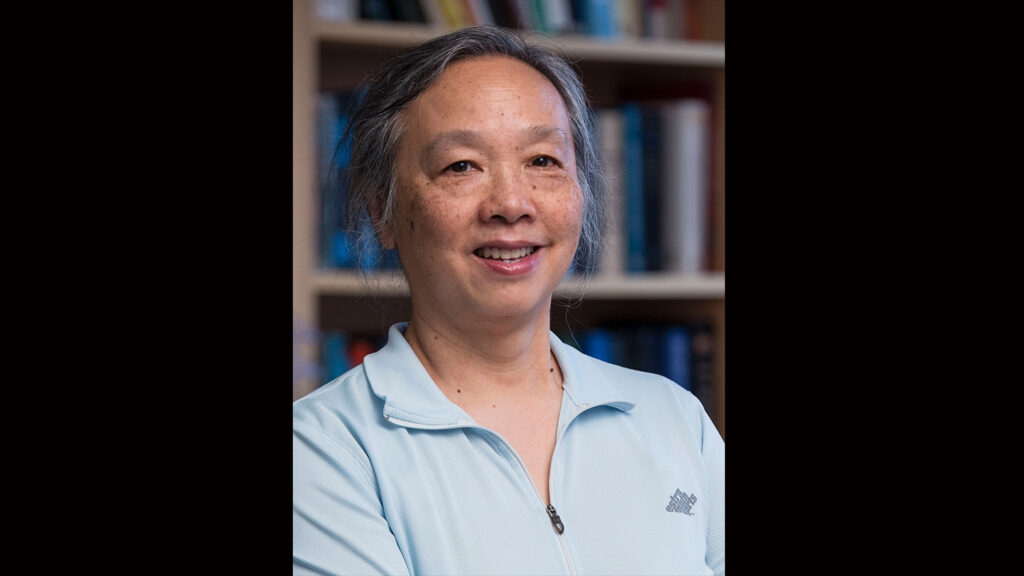In his will, Dr. Rolf Schock, who died in 1986, specified that half of his estate should be used to fund four prizes in the fields of Logic and Philosophy, Mathematics, the Visual arts and Music. The prizes in Logic and Philosophy and in Mathematics is awarded by the Royal Swedish Academy of Sciences, and those in the Visual arts and Music by the Royal Academy of Fine Arts and the Royal Swedish Academy of Music respectively.
The Royal Swedish Academy of Sciences awarded the 2024 Rolf Schock Prize in Mathematics to Professor Lai-Sang Young, Courant Institute, New York University, USA, ”for long lasting and deep contribution to the theory of non-uniformly hyperbolic dynamical systems”.
The symposium will take place at Institut Mittag-Leffler, Djursholm, Sweden, November 12, 2024.
Programme
9:30-10:00 Coffee and sandwich
Chair: Michael Benedicks, KVA
10:00-10:10 Welcome remark KVA
10:05-11:05 2024 Rolf Schock Prize inMathematics laurete, Professor Lai-Sang Young, Courant Institute, New YorkUniversity, New York
Title: Typical trajectories and observable events in dynamical systems.
Abstract: This talk summarizes developments in dynamical systems froman observational viewpoint, for systems that are deterministicor random, in finite or infinite dimensions. Infinite dimensions,observable events are often equated with positive Lebesgue measuresets, and simple examples suggest that Lebesgue measure transportedforward converges to either a stable equilibrium or a special invariantmeasure called an SRB measure. While this picture may be overlysimplistic for deterministic systems, it has been shown — undermild assumptions — to be valid under stochastic perturbations. I willdiscuss next the idea of observability for infinite dimensional dynamicalsystems. I will propose a notion that is a natural generalization of ideasin finite dimensions, and explain why with this notion, a number ofresults may carry over to infinite dimensions, to systems such assemiflows generated by some evolutionary PDEs.
11:15-12:15 Prof. Tere M-Seara, U. Politècnica de Catalunya (UPC).
Title: Instabilities in the three body problem
Abstract: In this talk we will review some old and new works about unstable phenomena in the three body problem.
After the classification of J. Chazy in 1922, there have been several results for some configurations and/or specificvalues of parameters, like the mass ratio or the eccentricity of the primaries (in the restricted case). We will also present a recent result where we obtain the existence of chaotic motions and oscillatory orbits in the general planar three body problem.
12:15-13:30 Lunch
13:30-14:30 Prof. Dmitry Turaaev, Imperial College, London
Title: Averaging in slow-fast Hamiltonian systems with mixed fast dynamics.
Abstract: We attempt to formulate a conjecture, and provide a numerical and heuristic evidence to it, suggesting that the non-ergodicity of the fast subsystem should enhance the equilibration in slow-fast Hamiltonian systems. A quantum version if also discussed.
14:30-15:00 Coffee break
15:00-16:00 Prof. Anders Karlsson, Université de Genéve, Géneve
Title: Generalized notions of Lyapunov exponents by a metric approach
Abstract: Invertible real 2×2 matrices act via Möbius transformations on the upper half plane preserving the hyperbolic distance. This generalizes to all dimensions and to many nonlinear contexts, for example surface homeomorphisms inducing isometries of the Teichmüller spaces, and deep learning. In joint works with F. Ledrappier and with S. Gouëzel we have established a multiplicative ergodic theorem that applies to such metric settings (containing Oseledets’ theorem and Thurston’s spectral theorem for surface homeomorphisms as special cases). Maps that do not increase distances also appear in machine learning, and random products of such maps appear in the training, initialization and regularization of deep neural networks. I will describe the metric approach and highlight a subadditive ergodic statement that is useful independently. Our approach is relevant for dynamics in infinite dimensional spaces and random dynamical systems which are two settings that have recently been emphasized and advanced in works by L.-S. Young.
16:10-17:00 Prof Omri Sarig, WeizmanInstitute of Science, Tel Aviv
Title: Measures of Maximal Entropy for C Infinity Surface Diffeomorphisms
Abstract: Let f be a C infinity surface diffeomorphism with positive topological entropy. Newhouse showed that f admits measures of maximal entropy (MME), and Buzzi, Crovisier and I showed that the number of ergodic MMEs is finite.The main result of the talk is that for each ergodic MME there is a L.-S. Young tower extension of a set of full measure, with the following properties: (1) the map from the tower to the manifold is almost-surely finite-to-one; (2) the tail of the first return time map, with respect to the MME, decays exponentially. By results of L.-S. Young and others, this implies a variety of properties for the MME, including exponential mixing, the almost sure invariance principle, and quantitative bounds for the Lyapunov exponents of measures with nearly maximal entropy. This is joint work with Jerome Buzzi and Sylvain Crovisier.
Closing remarks
17:00 End of Prize Symposium
Foto: ©Asselin: Courtesy of NYU Photo Bureau.
When you register for an event at the Royal Swedish Academy of Sciences, the Academy will process your personal data in order to organise the event. Read more in the Academy’s Privacy Policy (se link below)
The Royal Swedish Academy of Sciences occasionally records and photographs during its events. Photographs and video footage will be processed by the Academy and submitted to third parties for processing. Photographs and videos may also be used in our communication activities to provide information about the Academy’s activities in any of the digital and/or printed channels used by the Academy. If you do not consent to this or have other questions about our processing of personal data, please call us on +46 8 673 95 00, or email gdpr@kva.se
Read more about how the Academy processes your personal data
Kontakt: Veronika Eriksson
E-post: veronika.eriksson@kva.se
